Ambré Steps Further Into Her Own World
Following collaborations with H.E.R. and Kehlani, Ambré hones her own musical style by not using labels with her new EP, Pulp.
Ambré has been creating music since she was a child, using the rhythmic beats and swinging melodies as a form of communication. “Back then, I really, really, really didn’t talk at all,” she says. ”Music was kind of the only way for me to figure out how to explain something to people without actually talking.”
Since finding her voice through music, the 22-year-old artist has done more than just communicate—she’s excelled. At 17, Ambré was plucked from her home in New Orleans and flown to New York to work on H.E.R.’s 2017 self-titled album, which ended up winning the Grammy for Best R&B Album the same year. From there, she toured with friend and fellow artist Kehlani, with whom she also collaborated on a cover in 2015. For Ambré, music is all about working with people who she naturally connects with, to be sure the music is just as great as the people behind-the-scenes.
Fresh off of the release of her first official solo EP, Pulp, the self-described control freak is more than happy for the freedom to bring her own artistic vision to life. But this is not Ambré’s first time releasing solo music; she released the independent projects Wanderlust (2015) and 2090s (2016) and has been publishing music on SoundCloud for over five years. Now, though, she’s finally making sure her voice is heard—not just as a collaborator, but as her own artist.
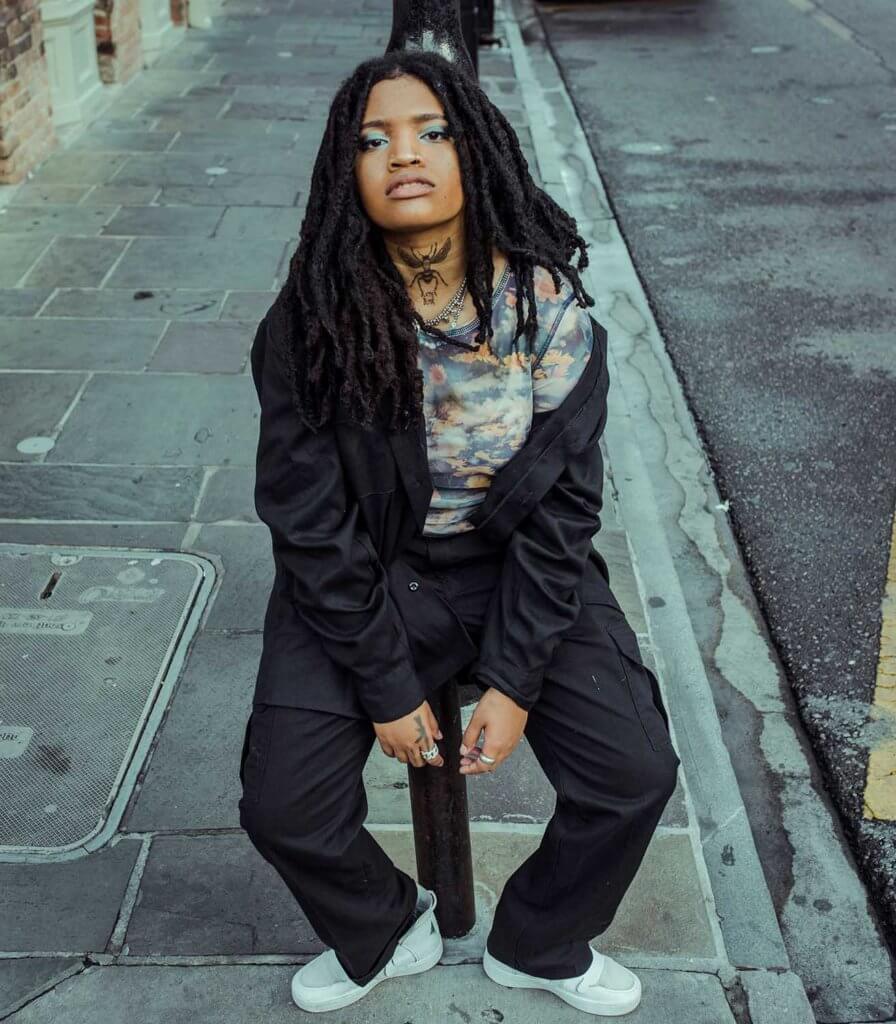
What was it like getting plucked from your hometown at 17 to work with H.E.R.? It led to major credit, and even a Grammy win—can you talk a bit about how it all felt?
Well, first of all, I was so excited to actually be traveling for music. It was my first time in New York, it was snowing, I was just geeking. I had never seen snow like that before. That was what was on my mind, honestly. I was just there to have fun, excited that I had even been found by someone who wanted to bring me somewhere to make music. I didn’t know it was going to turn out to be what it was, so it put less pressure on me.
I knew H.E.R. was the G.O.A.T singer, and my sister knew who she was. I was honestly just trying to impress my older sister, and I was like, “Look who I’m in the studio with!” I just wanted to have a good time and make some dope stuff, and I think [H.E.R.] wanted the same thing.
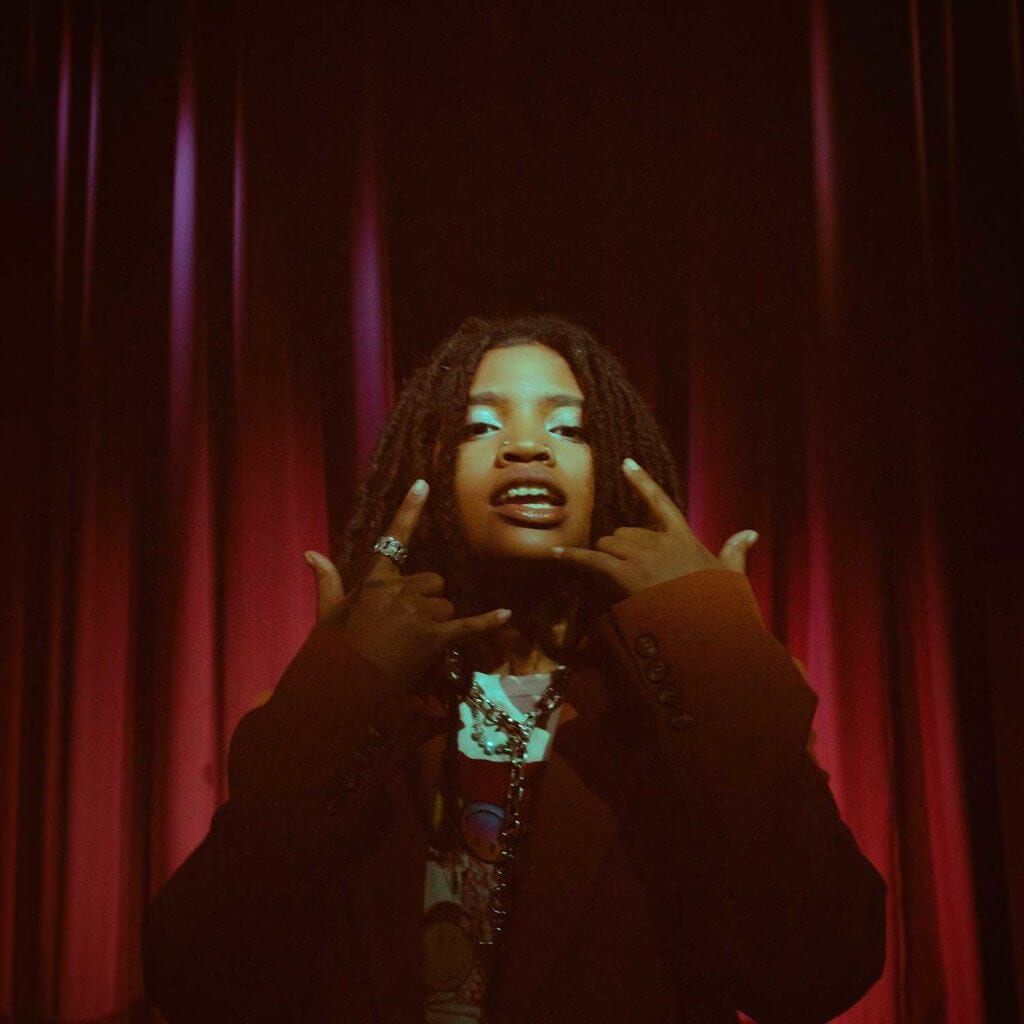
Despite it being a fun experience for you, it obviously got you all of this attention. How did you feel about people suddenly knowing your name and your work?
I was shocked, but I wasn’t. I knew it was possible for it to be [big]. I knew people who liked it, I just didn’t know to that magnitude. So I was very shocked, but very happy. Happy for H.E.R., mostly. I was just like, “This is so awesome, and you deserve everything.”
And then you got to tour with Kehlani, who you’re good friends with. Did touring with someone you were already close to make the experience better?
Those are good times we’ve gone through. [Laughs.] We were just—I don’t want to say raging, but, you know, we were definitely getting drunk, having fun. I think that was her first headline tour, so at almost every show, we had fun. We had so many first time experiences together; we got closer.
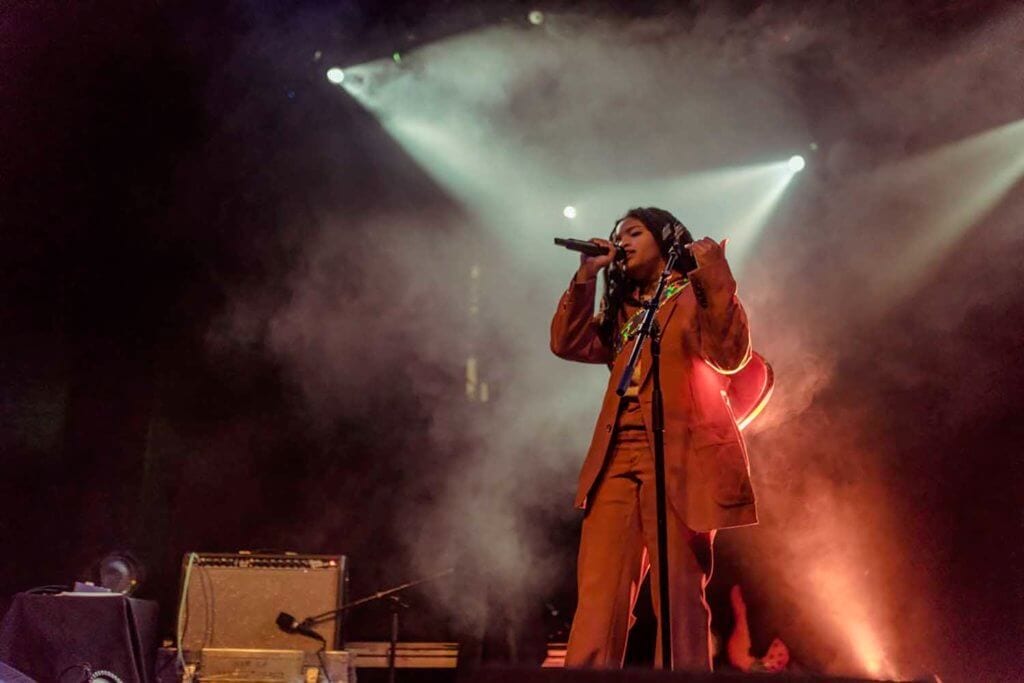
It seems like you tend to collaborate with artists who you have a connection with, who you feel like you are or can be close to. Is that purposeful, or do you just naturally find it in the people you gravitate towards?
I just naturally always want to get along with people, because otherwise it turns into a job, and that’s not cool. I haven’t really worked with someone I haven’t felt that connection with, so I’ve been lucky.
I read you don’t like to define your sound when it comes to your own music because you really want people to form their own opinions. Is that still true?
Categories work in the sense that they help people find stuff that they like, like, “Oh, this singer might be similar to this.” That is cool, I guess. But I just think that once you label yourself as an artist—as a genre—or you give yourself too many labels, you create a box for yourself that you, at least self-consciously, are going to want to stay in. I like to try and be free. For me, I just don’t like too many names or labels.
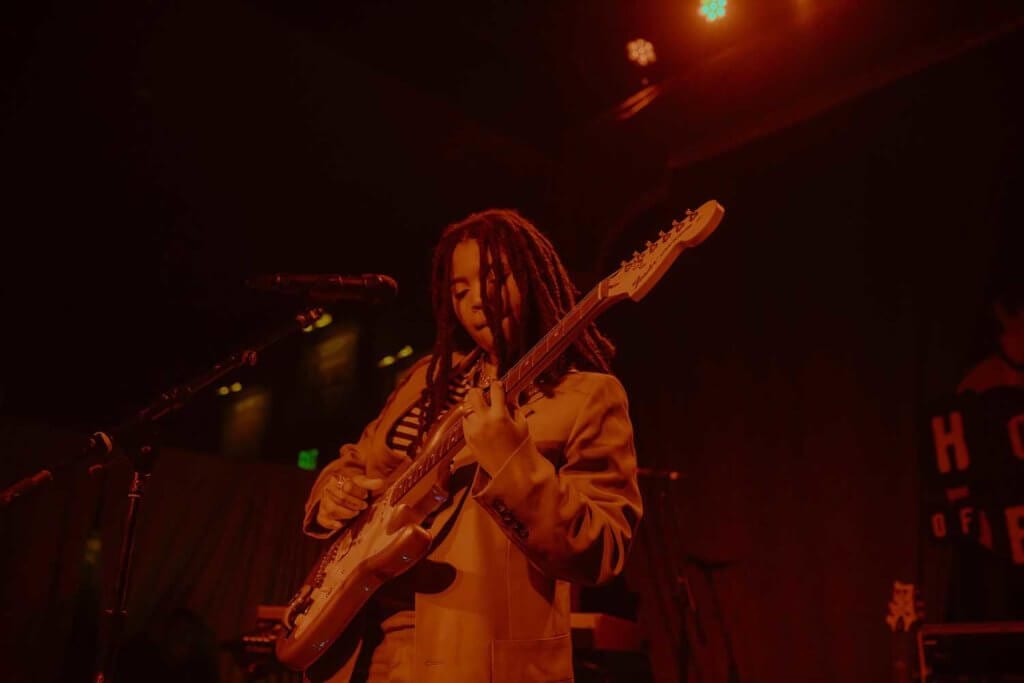
Do you look at your music catalogue as an evolution, or just as new, different stages of your life? What is it about writing music for you that makes you want it to be personal and unique every time?
If you listen to all my music, you can listen to the growth. You can always tell what I was listening to the most at the time. For the past year I’ve been listening to mad ‘70s funk, and mad Prince and Kendrick, so I kind of pull from those inspirations. Just whatever I’m feeling at that time. I don’t like to think about it too much. I just do whatever I feel.
What’s your general creative process?
Sometimes I’ll have a topic in my head that I want to talk about, and I just have to come up with melodies for it. Sometimes I’ll just freestyle and piece it together. Sometimes I just vibe out and do a voice memo and come back to it later—keep working on it until it becomes a song. That’s how I came up with some of my best songs; I just saw however I felt, and them came back and refined it. It’s very unusual, but I like to watch movies for ideas. Sometimes I’ll write a song to a movie.
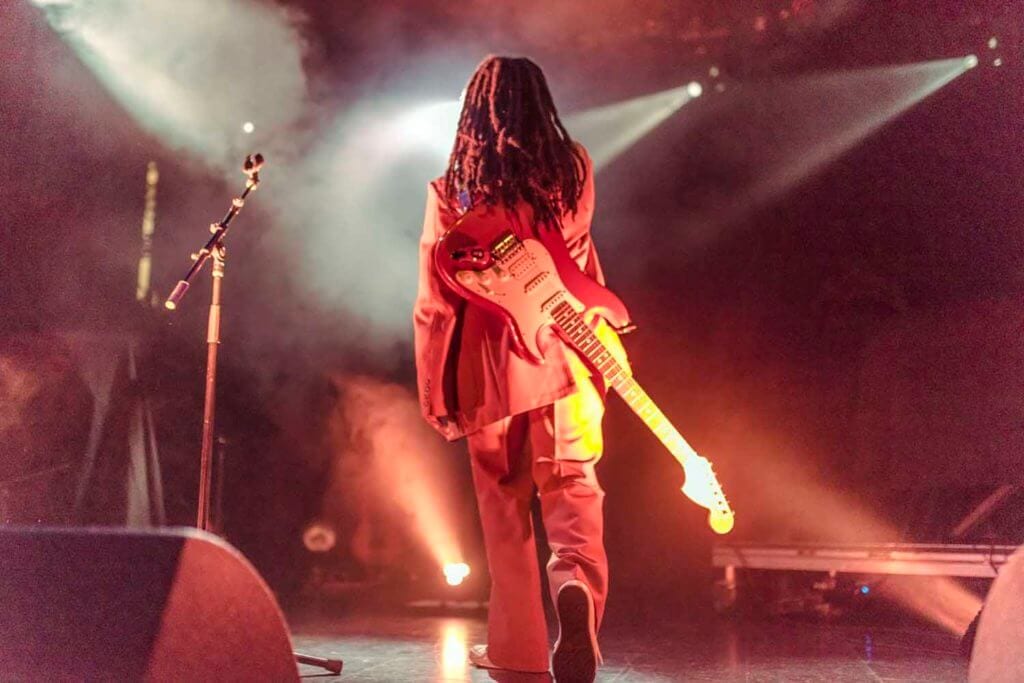
Guitars are such a personal thing to an artist. Can you talk a bit about which one you use and how the instrument factors into your songwriting?
I primarily use a Fender Strat with a Boss GT-1 multi-effects pedal, a Neumann M 149 microphone for recording, and Ableton for laying vocals and instruments. [My guitar] helps me focus on what I’m actually saying in a song. Whenever I’m having trouble with lyrics, I always try to strip it down and get to the base. It helps me with melody, too; if I feel like my melodies are getting repetitive, I can search for something different on guitar. I feel like, if it’s a good song on acoustic, it can definitely sound good produced out.
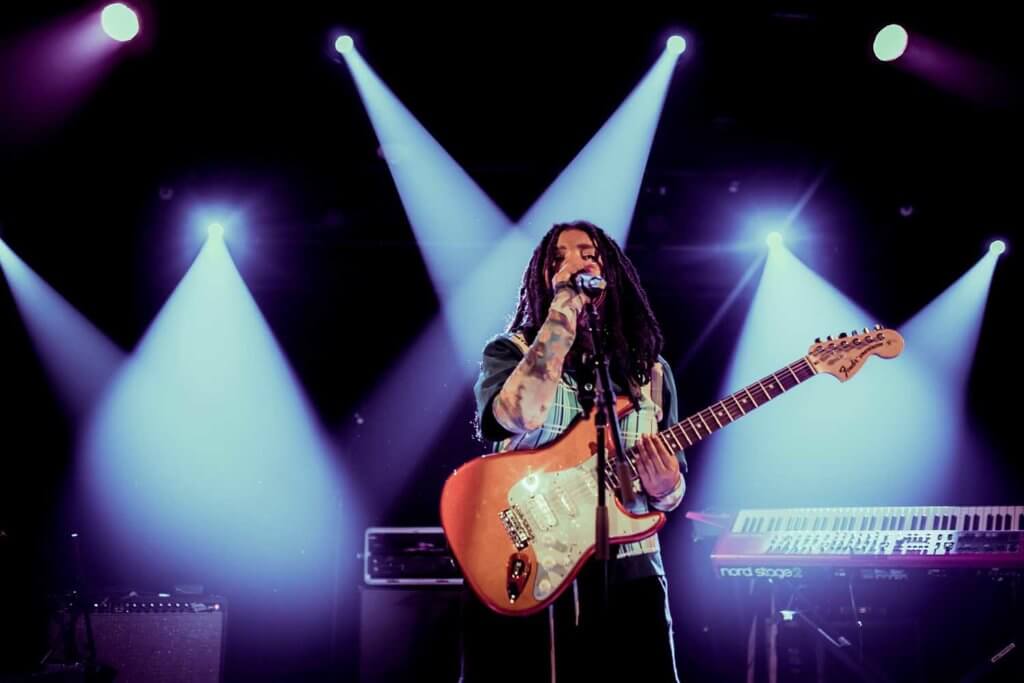
Why the need to have people really understand your music instead of just casually listening to it?
I’ve experienced music in many ways, and the best time that I’ve had is when I’ve allowed myself to really step into whatever world the artist created. It’s kind of like when you’re reading a book, right? Like, you can’t close your eyes because you’re reading a book, but you can imagine. It’s words on paper, so you’ve got to place yourself there so you can finish the picture. You draw the picture in your head as you’re reading. It’s like that for me. I want people to experience what I feel… it’s supposed to be an escape. When you’re watching a movie, you relate to it, but you’re still watching a movie. You just step into this different world.
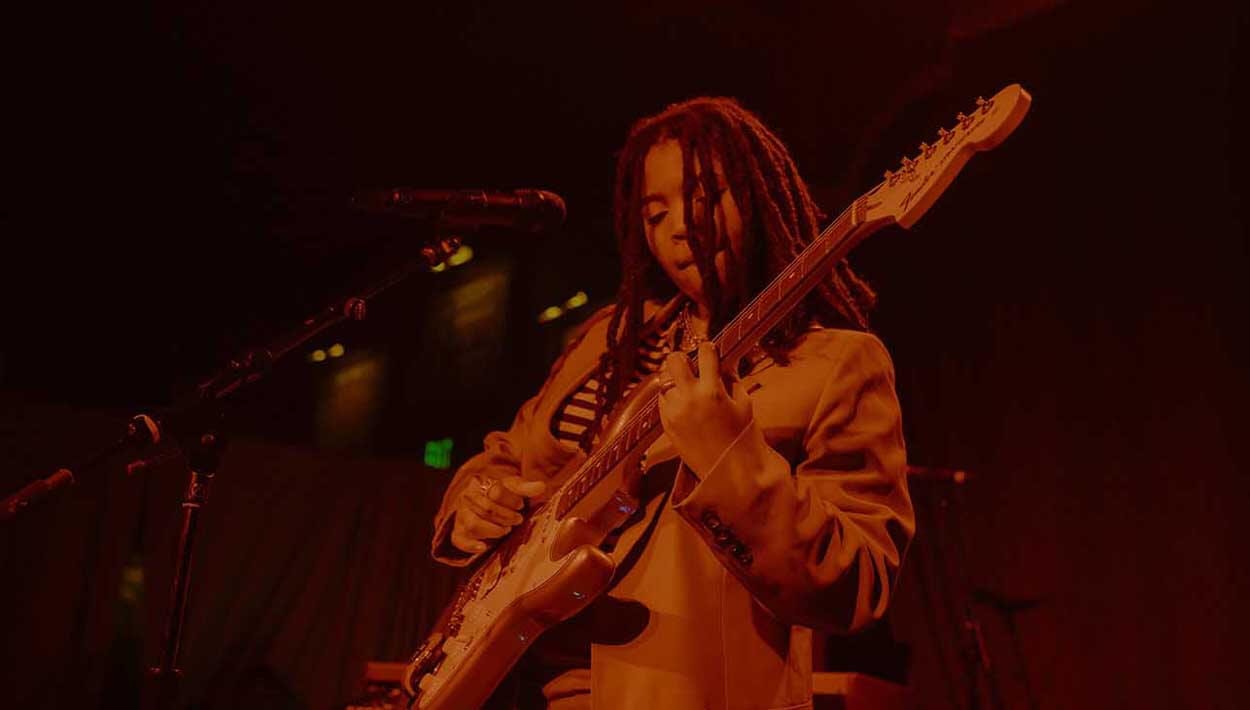

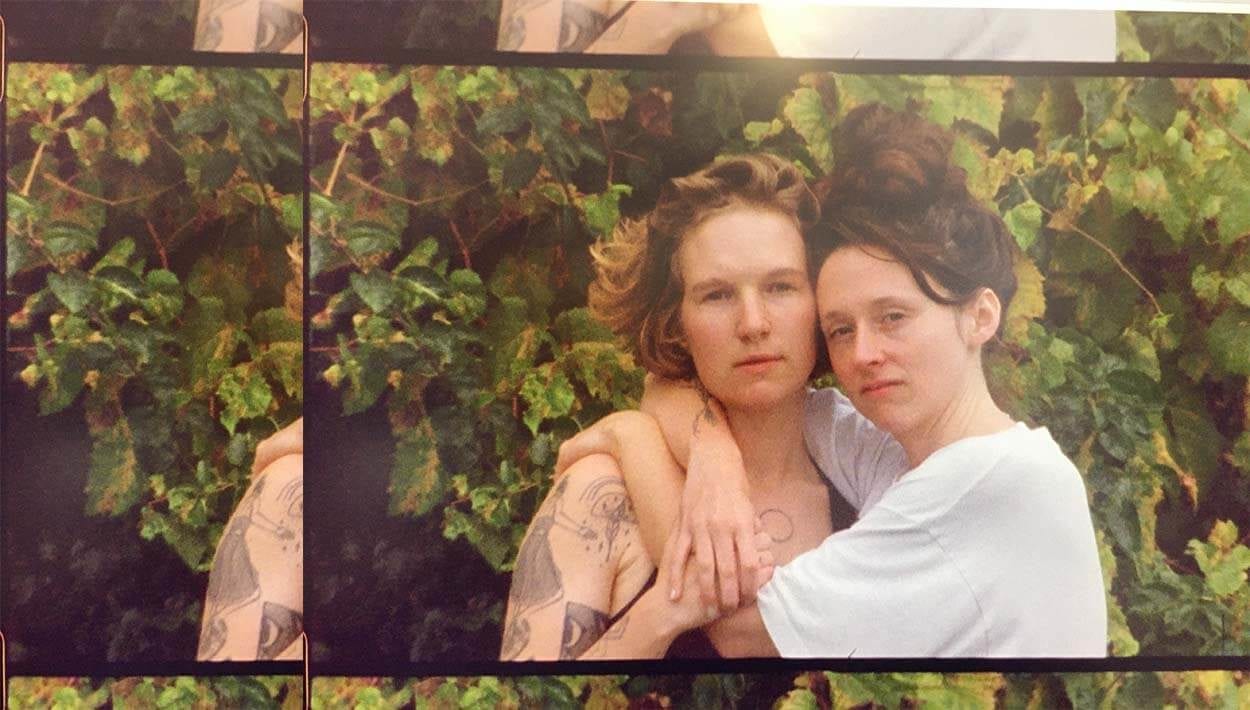
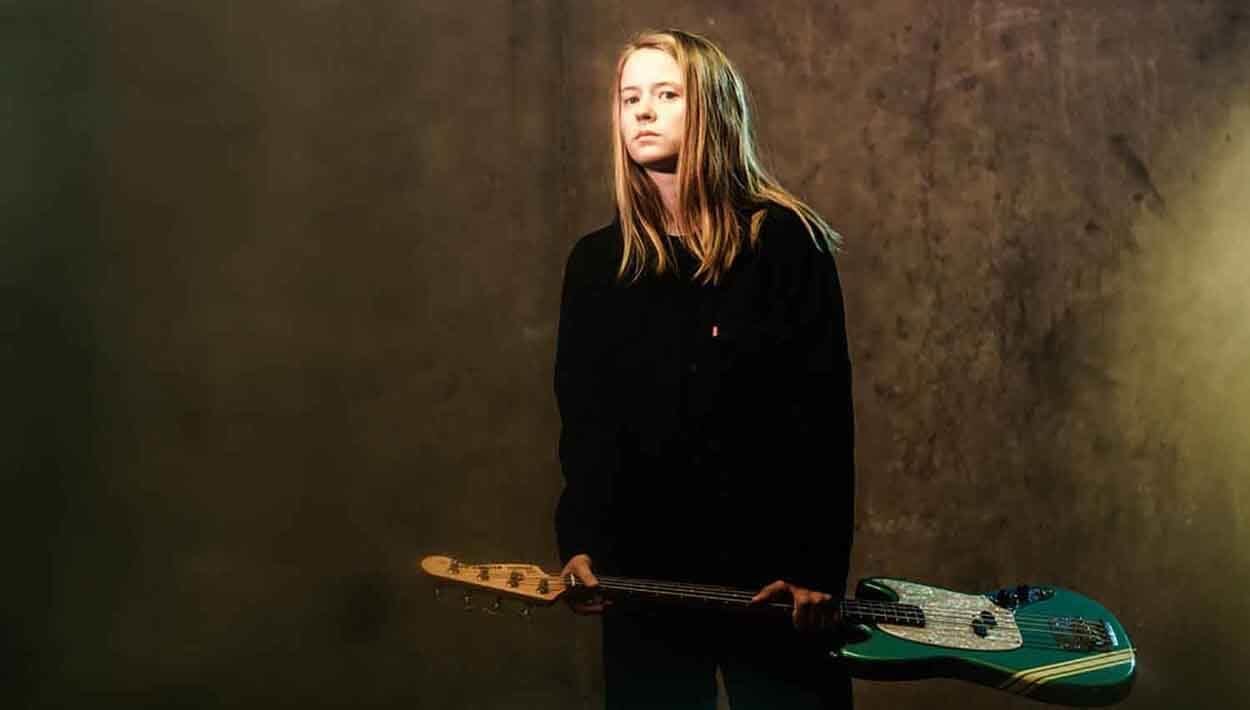
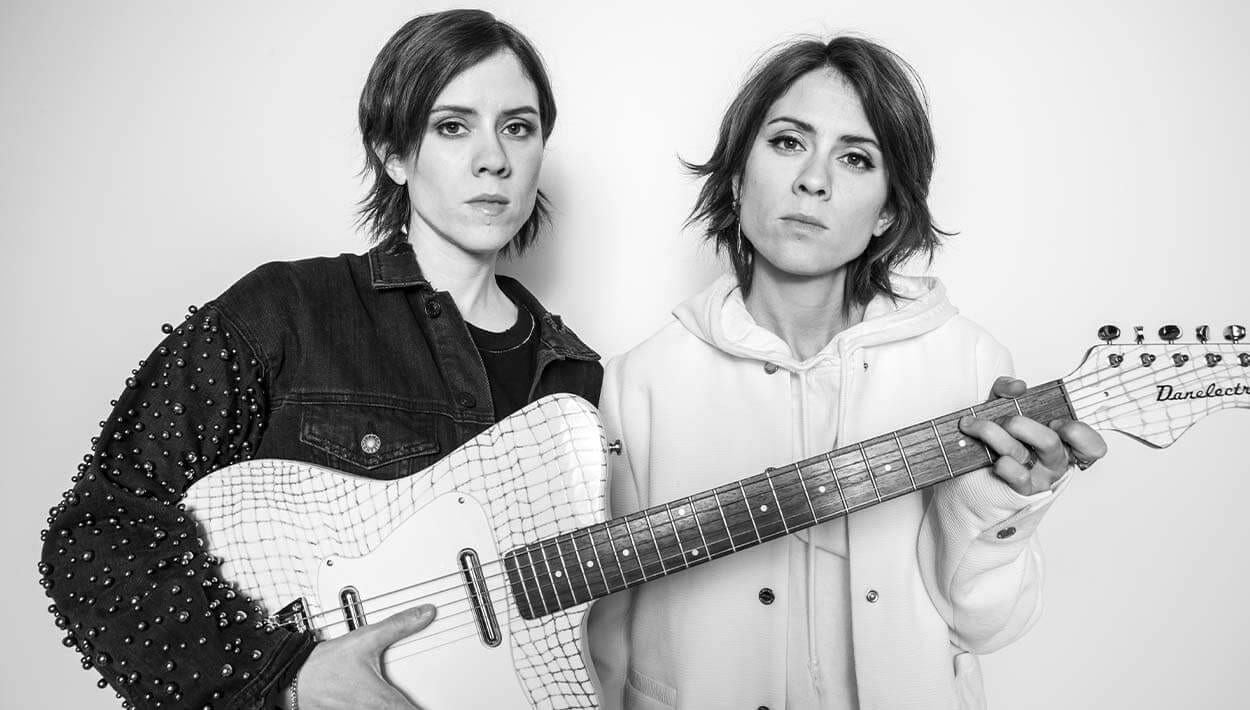
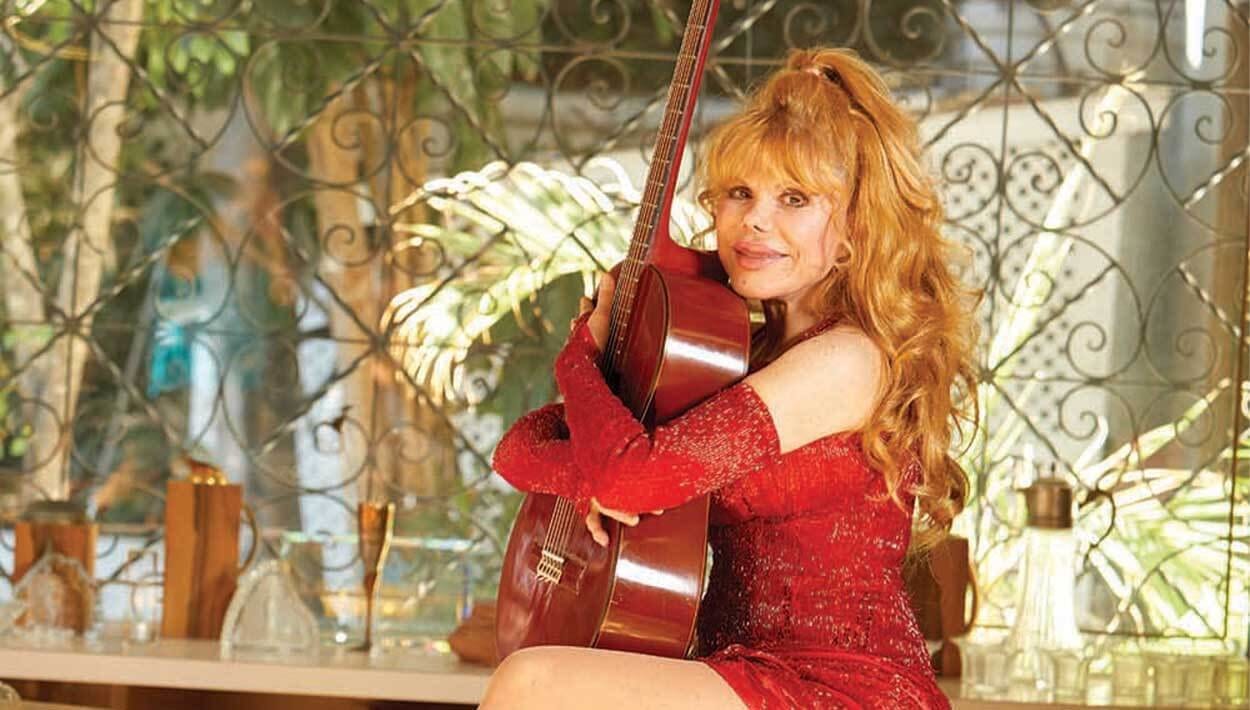
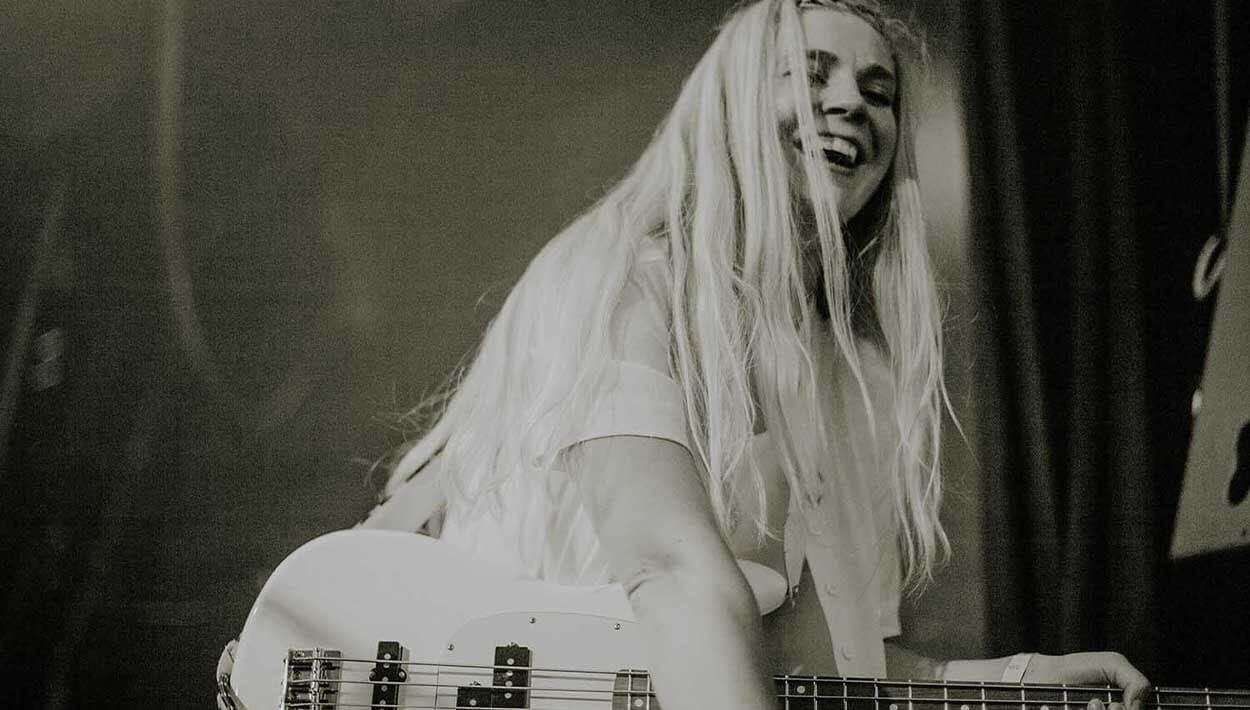
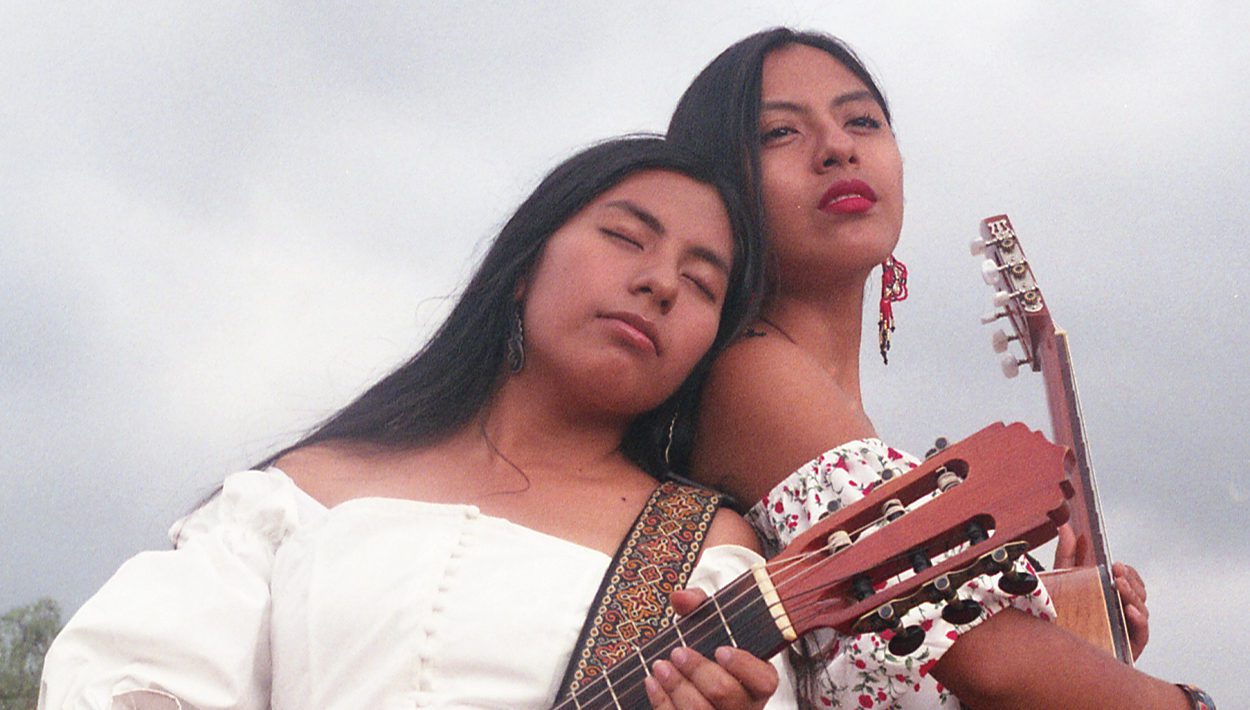
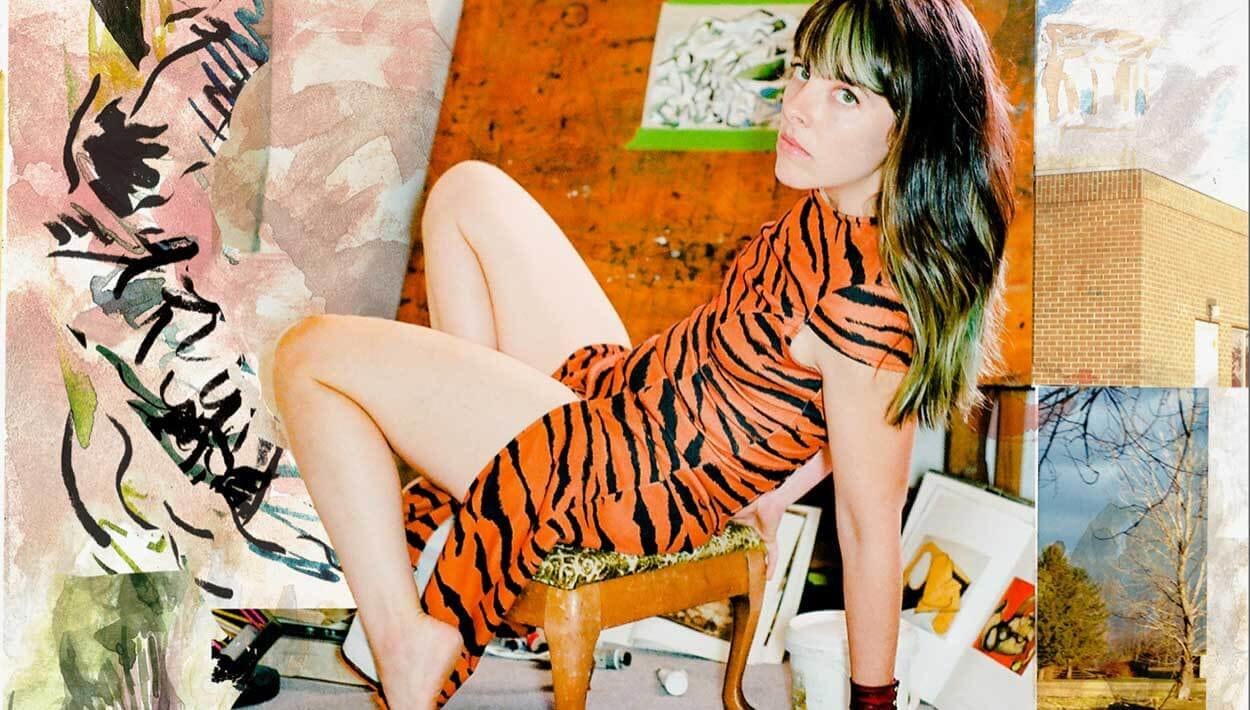
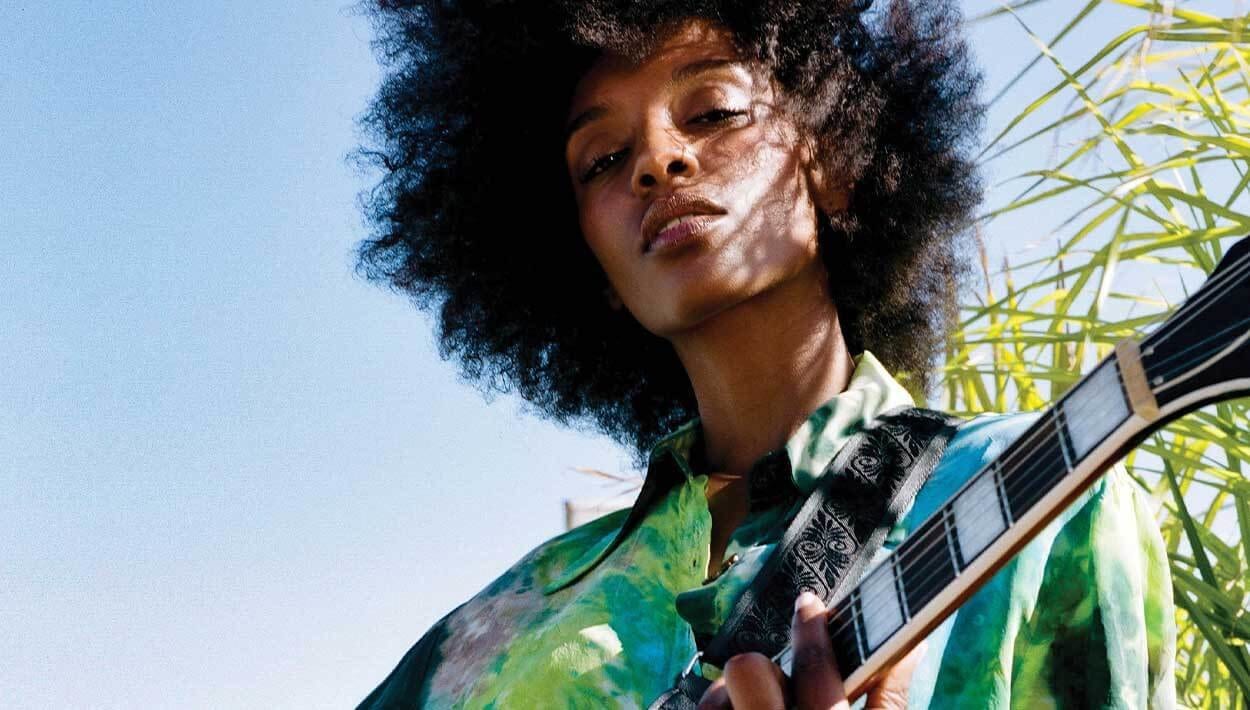
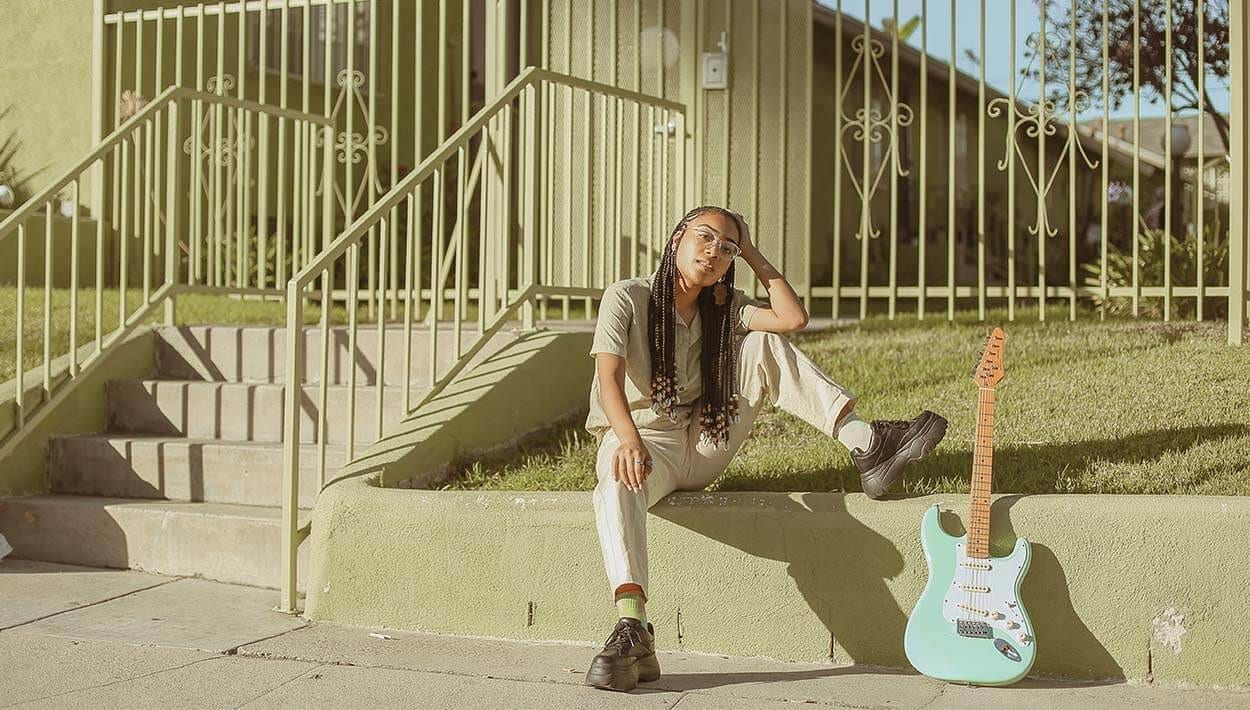
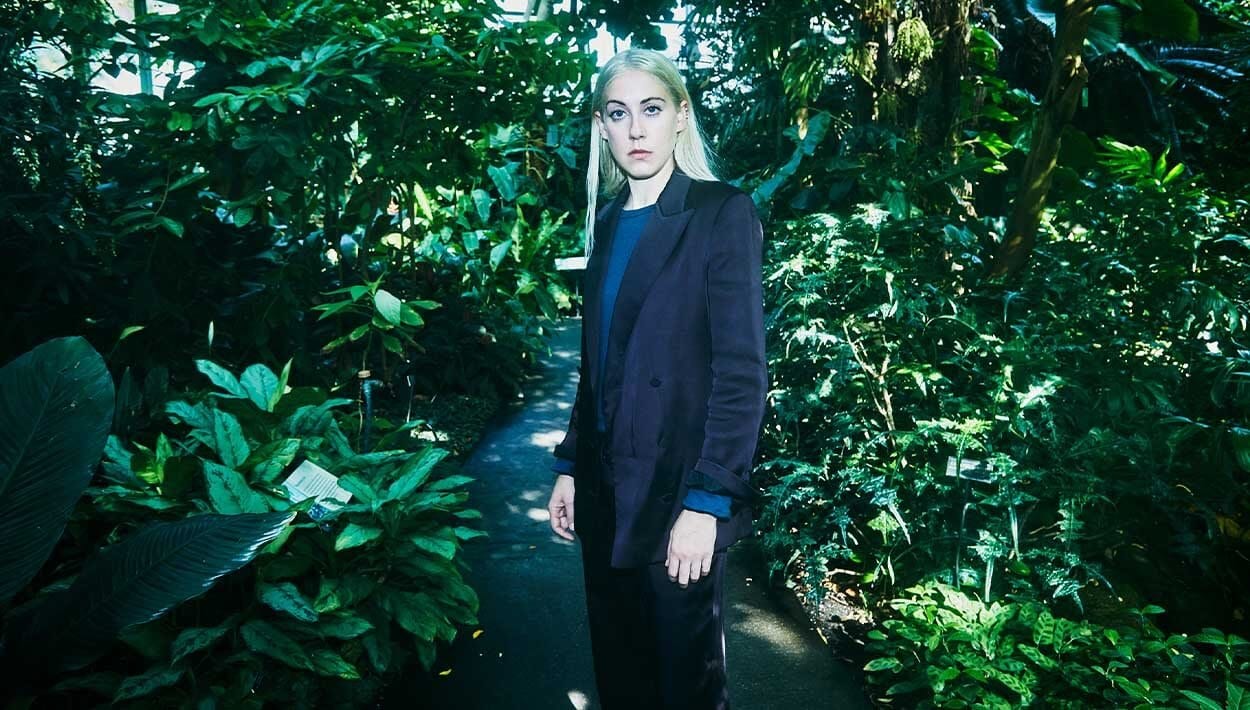


Comments
Thanks for the coverage. Looking forward to more.
Comment by Andrea Cannon on January 3, 2020 at 5:43 pmI am waiting for more blog about him. He is so talented.
Comment by granny on March 3, 2023 at 12:45 amThis progression might involve collaborating with new producers or songwriters basketbros, exploring different musical genres, or delving deeper into personal experiences and emotions in her music. It could also signify a shift in her visual aesthetic, stage presence, or overall artistic direction.
Comment by gemmalyly on July 24, 2023 at 9:27 pmWhat do you usually do during a bad epidemic season? To keep you entertained during the chilly weather, I discovered a wonderful game called geometry dash lite . Come with me right now.
Comment by Robert B. Spencer on September 24, 2023 at 8:00 pmAmbré’s connection with music dates back to her childhood, where she used it as a means of communication when she struggled with verbal drift hunters expression. Music became her way of conveying thoughts and emotions without speaking. This early relationship with music has played a pivotal role in her development as an artist.
Comment by Bekean Loinse on January 9, 2024 at 11:57 pmi am seeing new dress for girls
Comment by ahsan khan on January 16, 2024 at 3:06 am